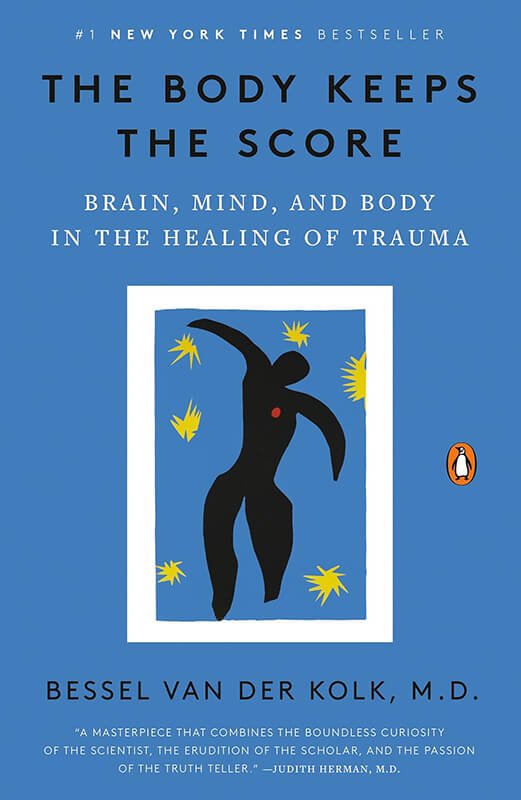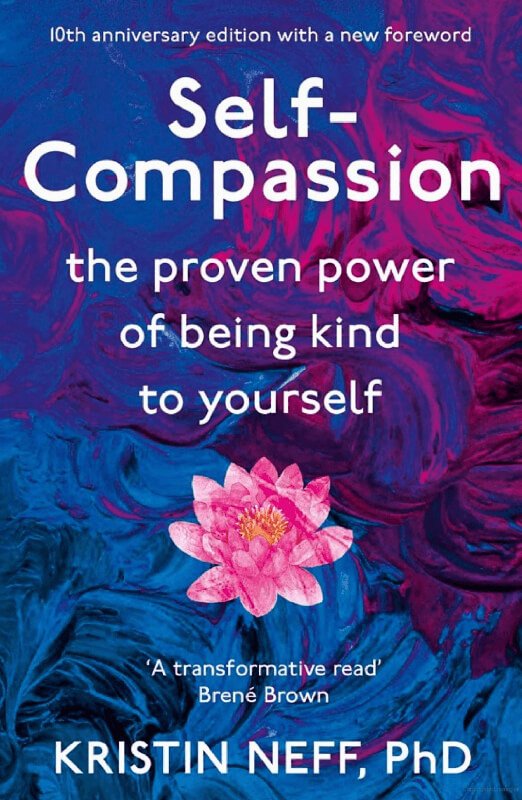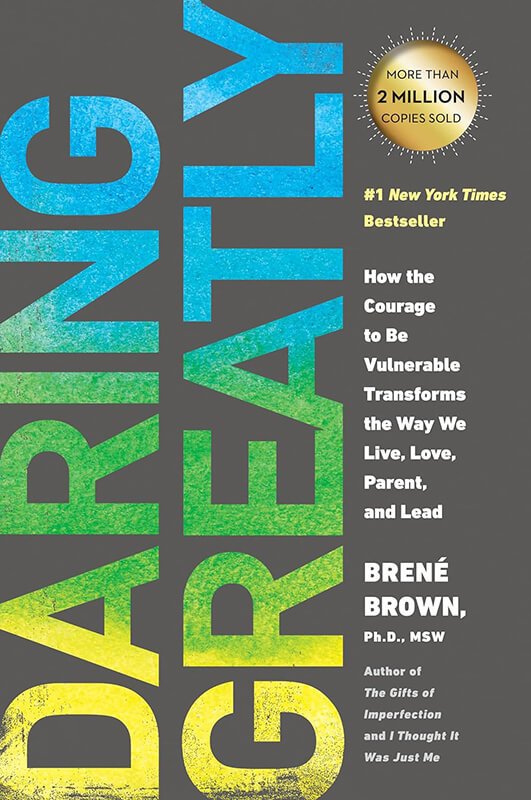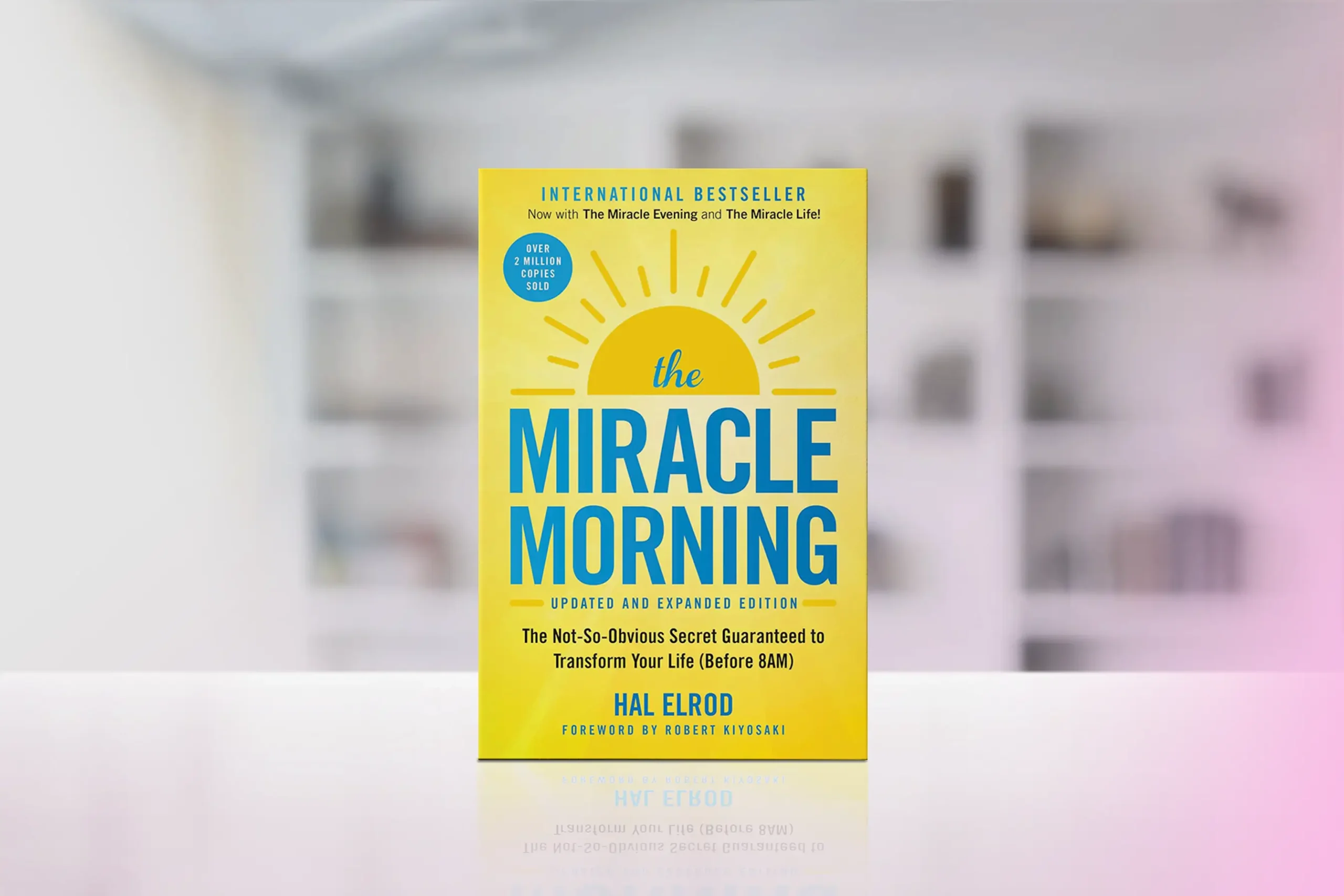Bessel van der Kolk’s “The Body Keeps the Score: Mind, Brain and Body in the Transformation of Trauma,” published in 2014, is a groundbreaking exploration of trauma’s far-reaching effects on the human mind and body.
Drawing from over three decades of experience as a clinician and researcher, van der Kolk presents a comprehensive and compassionate look at how trauma reshapes both brain and body.
This work not only illuminates the complex nature of traumatic stress but also offers hope through innovative treatment approaches. By bridging neuroscience, psychology, and human experience, van der Kolk provides readers with a transformative understanding of trauma and a roadmap for healing.
Core Concepts
“The Body Keeps the Score” introduces several key principles that form the foundation of understanding and treating trauma:
- Trauma’s biological imprint: How traumatic experiences alter brain structure and function
- The body-mind connection: The intricate relationship between physical sensations and emotional states
- Dissociation and embodiment: Understanding the disconnect from bodily sensations as a trauma response
- The importance of safety: Establishing a sense of safety as a cornerstone of healing
- Neuroplasticity: The brain’s capacity to rewire itself, offering hope for recovery
- Integrative treatment approaches: Combining traditional therapy with body-based interventions
These concepts empower readers to grasp the multifaceted nature of trauma and the diverse pathways to recovery, offering a holistic view of mental health and well-being.
Chapter-by-Chapter Review
Part I: The Rediscovery of Trauma
Van der Kolk opens by illustrating the profound and pervasive impact of trauma on the human mind and body. Drawing on decades of clinical experience, he shows that traumatic experiences—from childhood abuse to combat stress—reshape how the brain processes information and responds to stress. Trauma affects emotional regulation, memory, and relationships, often leaving invisible scars that persist long after the event itself. He emphasizes that trauma is not purely psychological; it is deeply physiological, embedding itself in the body and affecting overall health.
Part II: This Is Your Brain on Trauma
This section delves into the neuroscience behind trauma. Van der Kolk explains how the amygdala, prefrontal cortex, and hippocampus function differently in traumatized individuals. Trauma hijacks neural circuits, triggering hyperarousal, intrusive flashbacks, and difficulty distinguishing safety from danger. He demonstrates how these changes explain why survivors often relive trauma, struggle with anxiety, or exhibit dissociation. The chapter bridges clinical observation with neurobiological research, highlighting the brain-body connection in traumatic stress.
Part III: The Minds of Children
Childhood trauma receives special attention, emphasizing how abuse, neglect, and disrupted attachment patterns shape brain development and identity formation. Early adversity can impair emotional regulation, increase vulnerability to later stress, and create long-term relational difficulties. Van der Kolk underscores the importance of secure attachments, nurturing interventions, and early support in fostering resilience.
Part IV: The Imprint of Trauma
This part explores the behavioral and physical manifestations of trauma. Survivors often develop coping mechanisms that may include addiction, self-harm, or dissociation. Trauma can also affect the body directly, contributing to chronic pain, illness, and psychosomatic symptoms. The book illustrates the interplay between lived experience, neurobiology, and somatic responses.
Part V: Paths to Recovery
Van der Kolk presents integrated treatment approaches that combine mind and body work. Methods such as EMDR, yoga, neurofeedback, and somatic therapies help survivors reclaim a sense of safety, reconnect with their bodies, and restore agency. Recovery, he emphasizes, is not about erasing memory but learning to live fully despite it, fostering self-regulation, connection, and empowerment.
Key Strengths
- Integrates cutting-edge neuroscience with compassionate clinical insights
- Offers a comprehensive understanding of trauma’s effects on mind, brain, and body
- Provides hope through diverse and innovative treatment approaches
- Balances scientific rigor with accessible language and compelling case studies
- Emphasizes the importance of embodiment and body-based therapies in healing
Potential Drawbacks
- The depth and intensity of content may be overwhelming for some readers
- Some scientific explanations might be challenging for readers without a background in neuroscience or psychology
- The focus on severe trauma may not fully address milder forms of stress and adversity
Who This Book Is For
“The Body Keeps the Score” is an invaluable resource for a wide range of readers, particularly:
- Mental health professionals seeking to deepen their understanding of trauma
- Individuals on a personal healing journey from trauma or PTSD
- Parents, educators, and caregivers interested in understanding childhood trauma
- Anyone curious about the intersection of neuroscience, psychology, and human experience
Final Review
“The Body Keeps the Score” is a tour de force that revolutionizes our understanding of trauma and its treatment. Bessel van der Kolk masterfully weaves together scientific research, clinical experience, and human stories to create a compelling narrative that is both intellectually rigorous and deeply moving.
The book’s greatest strength lies in its holistic approach to trauma, acknowledging the complex interplay between mind, brain, and body. By offering a range of treatment modalities that go beyond traditional talk therapy, van der Kolk provides hope for those who have struggled to find relief through conventional methods.
While the content can be intense and occasionally technical, the author’s compassionate voice and use of case studies make the material accessible and engaging. The emphasis on neuroplasticity and the body’s innate capacity for healing offers a message of hope and empowerment to readers.
Rating: 4.8/5
A groundbreaking, compassionate, and ultimately hopeful exploration of trauma and healing that empowers readers to understand and reclaim their minds and bodies.

Alternative Books
If you found “The Body Keeps the Score” insightful, consider exploring these related books that offer complementary perspectives on trauma, healing, and mental health:

“Man’s Search for Meaning” by Viktor E. Frankl
Explores finding purpose and resilience in the face of extreme trauma.
Rating: 4.7/5

“Self-Compassion” by Kristin Neff
Offers strategies for cultivating self-kindness and emotional resilience.
Rating: 4.6/5

“Daring Greatly” by Brené Brown
Examines vulnerability and its role in emotional healing and connection.
Rating: 4.7/5





